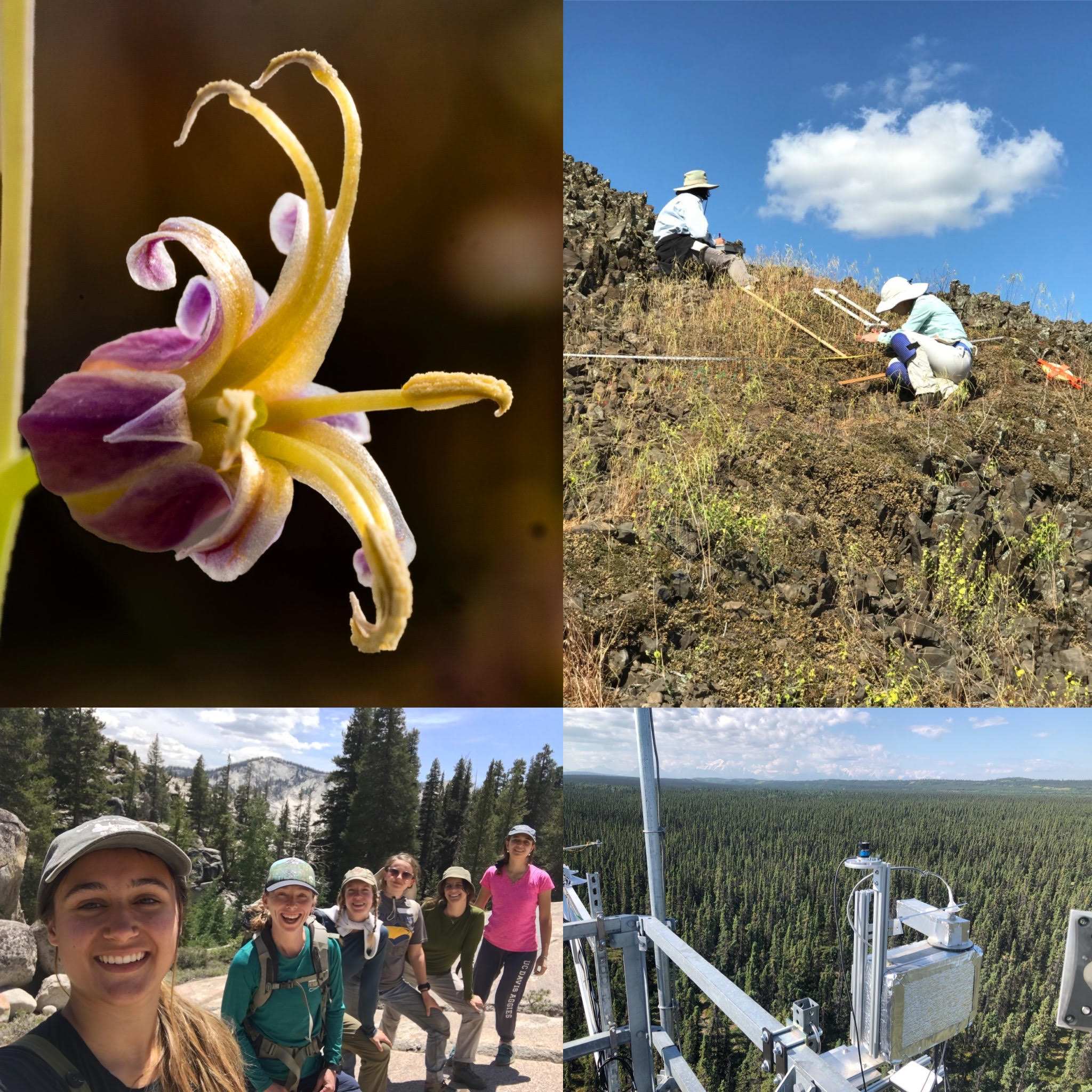UC Davis Graduate Positions Combining Ecology, Remote Sensing and Genomics to Understand Population Dynamics
The Maloof, Magney, and Gremer labs, and science educator Jamison-McClung at UC Davis are recruiting 3 students for graduate research and training as part of a collaborative, interdisciplinary research project. This NSF-funded project seeks to integrate quantitative genetics, genomics, ecology, and remote sensing to understand and predict plant population persistence in the face of climate change. More details about the project can be found on NSF’s abstract page for this project.
 Trainees will be engaged in rigorous, interdisciplinary work that integrates genetic, physiological, and environmental data to answer fundamental questions about population responses to climate shifts and consider the potential societal and policy impacts. Through workshops, coursework, peer-to-peer learning, and a mentoring network, students will gain skills in computational, field, and remote sensing approaches.
Trainees will be engaged in rigorous, interdisciplinary work that integrates genetic, physiological, and environmental data to answer fundamental questions about population responses to climate shifts and consider the potential societal and policy impacts. Through workshops, coursework, peer-to-peer learning, and a mentoring network, students will gain skills in computational, field, and remote sensing approaches.
We will also focus on building broad professional skills useful for a variety of post-PhD career paths, including an introduction to science communication, science policy, project management and best practices for creating inclusive research environments. The team will host an annual Science Communication and Professionalism Workshop and trainees will develop science communication skills via social media and blogging for the project website. In years 2 and 3 of the funded project, our collaborative research and training community will include Sacramento State University graduate students participating in the Advancing Diversity by Educating Professors of Tomorrow (ADEPT) program.
Our project team is looking forward to working with a diverse, interdisciplinary group of graduate students and postdoctoral researchers. We encourage all interested students to contact one of the participating lab PI’s (contact info listed below) to discuss their interest in:
-
Working broadly across disciplines with scientists at various stages of training and from diverse backgrounds
-
Integrating technical approaches from field work, remote sensing, and genetics/genomics to address ecological and evolutionary questions
-
Gaining experience in mathematical modeling, statistical analysis, data science, and bioinformatics
-
Developing transferable professional skills necessary for long term success as a PhD scientist across public (e.g. academia and government) and private (e.g. industry and non-profits) sectors
How to Apply
Interested applicants should contact the PIs: Julin Maloof (jnmaloof@ucdavis.edu), Troy Magney (tmagney@ucdavis.edu), Jenny Gremer (jrgremer@ucdavis.edu), and Denneal Jamison-McClung (dsjamison@ucdavis.edu) and include a cover letter describing interests and relevant background and experience preferably by November 12, 2021.
Applicants will need to apply to graduate programs at UC Davis for admission. Julin Maloof accepts students through the Plant Biology and Integrated Genetics and Genomics graduate groups, Troy Magney accepts students through the Graduate Group in Ecology, and Jenny Gremer accepts students through the Population Biology Graduate Group and the Graduate Group in Ecology. Dr. Jamison-McClung does not accept students directly, but works with interdisciplinary faculty via the ADEPT, ADP and Designated Emphasis in Biotechnology programs.
The specific research PI and graduate program you apply to will depend on interests, background, and experience, so please contact PIs before applying to discuss options. Applications for all of these graduate programs are due December 1, 2021.